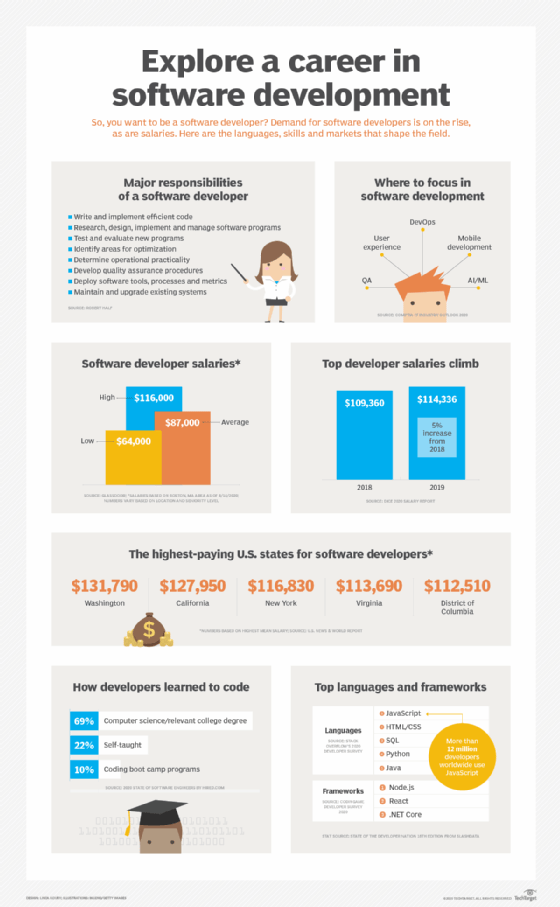A Java programming career path can open doors beyond code
A Java programming career path can lead to so much more than code. Programmers should consider these options that extend beyond the confines of software development.

There are compelling reasons to pursue a career in Java development.
Software developers continue to be in big demand and the long-term job prospects look good. These jobs allow people to work for the largest and most stable organizations. People who choose a Java programming career path are practically guaranteed long-term job security.
Java programming is a skill that is usually well compensated. The technology undergoes frequent changes, which provides regular intellectual growth, and for the working Java developer, this provides ongoing engagement and stimulation.
These are compelling reasons to pursue a Java programming career path, but they overlook one of the biggest benefits to learning Java -- it can open the door to a world beyond programming.
I launched my Java programming career as an instructor. I was a self-taught programmer when an IT college hired me to share the techniques I used to teach myself Java. My first job in IT was as a technical trainer, not a developer.
The college where I taught was technical and my students needed to be adept at software development to succeed. The program churned out graduates with exceptional coding skills, but fewer than half of the graduates worked as programmers.
Careers in Java
Some of my best students began their careers in sales. With strong knowledge of software development, an understanding of technology, integration and a bit of foresight with regard to market trends, many found software sales to be more lucrative than software development.
Software developers with solid organizational skills often find that positions outside of development can be more rewarding. The two pivotal roles in an Agile development environment are that of Scrum Master and Business Owner. The Scrum Guide states that a programming background isn't required for these roles. The best people for these jobs, however, are often the ones that know how to write code.
Software developers often overestimate how much effort is required to complete a given task. And clients are often unrealistic about what developers can do from a technical standpoint. Without a solid foundation in software development, it's tough to know where to call foul on such things. But a Scrum Master who knows how to code or a Business Owner with a software development background can make that call with confidence.
As for the graduates who did go directly into the programming field, I found that fewer than half were on the job ten years later.
Java developer career options
Companies promote good programmers out of those roles. For those who start out coding, the Java programming career path typically progresses in this way. The first job is junior developer, next step is a level up as a senior developer. Next will be team lead positions, which then transition into an architect type job. Eventually, a competent developer lands on a management track.
Those with a creative flair sometimes move into graphic design. Individualistic and independent types often pursue more entrepreneurial avenues. Highly social developers who engage well with others can find great satisfaction in jobs such as software evangelists and in other public relations fields. Technical writing and IT journalism are two other rewarding fields where a software developer can easily transition and never have to compile a line of code again.
There are many compelling reasons to pursue a career in software development. A Java programming career path can lead into all sorts of peripheral fields and interesting endeavors beyond code.


